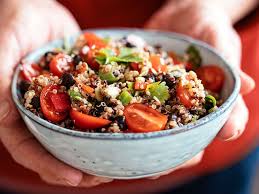Strokes are becoming more common nowadays, largely due to how we live. It’s kind of scary, right? A stroke occurs when the blood supply to part of your brain is interrupted or reduced, depriving brain tissue of oxygen and nutrients. This can cause brain cells to die, leading to serious complications.
So, if you have a stroke, it can really mess up your health and make it hard to perform daily activities.
But here’s the good news: focusing on a heart-healthy lifestyle can make a significant difference. Paying attention to what you eat is crucial because your diet plays a vital role in keeping your heart strong and fighting off problems.
Choosing the right foods that prevent stroke can be a game-changer. They can help manage blood pressure, reduce inflammation, control cholesterol levels, and promote your overall cardiovascular health.
So, let’s make some easy changes to what you eat.
In this blog, we will show you how small dietary changes can have a big impact on your heart health. Are you ready to join us on the journey where we will unveil the 5 best foods that prevent stroke? Buckle up!
5 Best Foods That Prevent Stroke
A well-balanced diet rich in certain foods can significantly lower the chances of experiencing a stroke. Now, what are these foods? To find the solution, come with us as we give you a list of stroke prevention diets to follow regularly. Continue reading!
-
Khapli Atta
Packed with vitamins, proteins, minerals, and dietary fibres, Khapli atta can help control diabetes and heart diseases. This flour provides immense benefits for your body, improving your overall gut health. Compared to regular wheat flour, this traditional wheat variety offers superior nourishment in every aspect.
Benefits
- Lowers Cholesterol: With its rich source of dietary fiber, Khapli atta removes bad cholesterol from your body. Filled with soluble fiber, it binds with cholesterol and prevents it from being absorbed into the bloodstream, reducing the risk of heart disease and stroke.
- Prevents Diabetes: Khapli Atta has a low glycemic index, which helps manage blood sugar levels and also removes inflammation. Its high fiber content helps in maintaining healthy sugar and lipid levels, promoting satiety and supporting your overall health.
- Easily Digestible: Being a native light grain, Khapli wheat atta can be easily absorbed and digested.
- Reduces Heart Problems: Loaded with magnesium, iron, vitamin B3, and niacin, Khapli atta decreases the chances of stroke or other cardiovascular disease in your body. It is rich in antioxidants, such as polyphenols, which help reduce oxidative stress and inflammation in the body, thus lowering the risk of developing heart diseases.
- Good for Pregnant Women: Packed with essential nutrients such as iron, folate, zinc, and magnesium, Khapli wheat is ideal for pregnant women as it helps in the development of baby and overall health of mother.
After Khapli atta, comes another food that shines in the list of best foods to prevent stroke. Just have a look!
-
Safflower Oil
The antibacterial qualities of safflower oil, derived from the safflower plant’s seeds, make it well-liked. Usually, this oil comes in two varieties- one high in oleic acid and another high in linoleic acid. Oleic acid is a monounsaturated fatty acid known for its potential health benefits, including reducing the risk of stroke and other heart diseases. On the other hand, linoleic acid is a polyunsaturated fatty acid that is also beneficial for heart health and overall well-being.
Before buying safflower oil, customers should check the label to ensure they’re getting the right type for their needs. However, Two Brothers Safflower Oil contains high oleic acid which may help you to prevent stroke and other heart diseases.
Benefits
- Diabetes Control: Loaded with polyunsaturated fatty acids and Omega-6 fatty acids, safflower oil can be a good option for increasing insulin sensitivity, reducing blood sugar levels, and preventing diabetes.
- Smoother Digestion: By functioning as a lubricant and moderate laxative in your large intestine, safflower oil helps relieve constipation, promotes healthy digestion, and prevents enlargement of the spleen and liver, by cleansing your stomach and intestines.
- Lowered Cholesterol: With no negative effects on your good (HDL) cholesterol, safflower oil can help lower your LDL levels. Rich in monounsaturated and polyunsaturated fatty acids, this oil decreases cholesterol when used instead of other cooking oils.
- Prevents Risk of Stoke: Compared to other oils, safflower oil has significantly higher quantities of linoleic acid. This promotes heart health by lowering blood cholesterol levels. By lowering the LDL levels in your body, this oil prevents the risk of stroke or heart attack.
There is one more option that stands out when you choose the best food for stroke prevention.
-
Five Whole Bean Legume Mix
This bag comes with a nutritious mix of five beans, whole pulses, and legumes, which are unpolished and hand-harvested to retain nutrients. With a higher content of fiber, potassium, and magnesium, legumes are a powerhouse food that can help prevent stroke.
Benefits
- Good For Heart: Packed with antioxidants, vital minerals, and nutrients like iron, magnesium, potassium, and folate, legumes help reduce cholesterol, blood pressure, and the risk of stroke or heart issues.
- Balanced Weight: Nutrient-dense legumes make you feel full, which helps you stop overeating and manage your weight. Keeping a healthy weight is crucial for heart health since obesity increases the risk of cardiovascular illnesses.
- Body Cleanser: The soluble fiber in legumes acts as a natural cleanser for your body by attaching itself to cholesterol and gradually eliminating it. This improves heart health by lowering the risk of atherosclerosis, or blood vessel hardening.
- Lowers Risk of Type 2 Diabetes: Legumes have a low GI, which means they don’t cause a quick spike in blood sugar. This is good because it lowers the risk of type 2 diabetes. Legumes can also reduce the levels of bad cholesterol and fats in your blood.
Up next, comes another food with immense benefits that can keep you away from heart diseases.
-
Turmeric
Used in cooking and traditional medicine, this vibrant yellow spice brings potential benefits to your health. Incorporating turmeric into your regular healthy diet can yield amazing results in stroke prevention and overall health improvement.
Benefits
- Anti-Inflammatory Properties: The bioactive substance named curcumin, present in turmeric, can help fight chronic inflammation with its potent anti-inflammatory properties, by reducing swelling and pain, making it helpful for conditions like arthritis.
- Stroke Prevention: Loaded with antioxidants, turmeric can help neutralize harmful free radicals in your body, which otherwise can damage your blood vessels and contribute to stroke risk. The compound curcumin present in it can also prevent strokes by keeping your blood vessels healthy.
- Cancer Prevention: Turmeric, filled with curcumin, can also aid in cancer treatment by affecting cancer growth and development. Consumption of this spice can cause the death of cancerous cells, reduce the spread of cancer in your body, and prevent the growth of new blood vessels in tumors.
- Improved Digestion: Turmeric helps in smoother digestion by reducing all forms of digestive disorders like constipation, indigestion, bloating, stomach upset, and others. It reduces inflammation in your digestive tract and protects your gut lining.
Last but not least, comes another superfood which is also your saviour from getting a stroke or heart issues.
-
Cashews
Whether consumed as a snack or used as an ingredient in different cuisines, cashews contribute to your health and well-being in various ways. These antioxidant-rich nuts offer a good nutritional profile that strengthens immunity against diseases.
Benefits
- Improving Insulin Sensitivity: With a low glycemic index and high fiber content, cashew nuts prevent spikes in blood sugar levels and slow down the absorption of sugar in your bloodstream, improving insulin sensitivity and lowering the risk of diabetes.
- Protects Heart: Packed with antioxidants, magnesium, and potassium, cashew promotes your heart health. The monounsaturated fatty acids (MUFA) and polyunsaturated fatty acids (PUFA) they contain can also help reduce cholesterol, thereby decreasing the risk of heart disease.
- Enhances Brain Function: Rich in vitamin E and magnesium, monounsaturated and polyunsaturated fats, cashew nuts can help in the cognitive functioning of your brain, enhancing your memory and cognition and preventing age-related cognitive decline.
Incorporating these five superfoods into your diet can significantly reduce the risk of stroke and promote overall well-being.
FAQs: Food to Decrease Chance of Stroke
How to identify if I am having a stroke?
Firstly, you will feel numbness, weakness, or paralysis in your face, arm, or leg, which entirely affects one side of your body. In this case, try and lift both the arms above your head.
A stroke may be indicated if one arm starts to droop. Another sign of stroke is when you try to smile, one side of your mouth will droop.
Is it necessary to exercise regularly to maintain your heart health?
Regular exercise benefits your heart in several ways. It can lessen the risk of heart disease by strengthening your heart muscle, enhancing blood circulation, lowering blood pressure, reducing cholesterol, and managing weight. Even daily brisk walking can also help you maintain your heart health.
Can stress affect your heart health?
Yes, your heart health can be affected by stress. Chronic stress may lead to high blood pressure, heart disease, and inflammation. Therefore, it’s advisable to manage your stress through meditation, exercise, counseling, and other stress-reduction techniques, as it’s crucial for your heart health.
Conclusion
You can give yourself the best chance to lead a long and healthy life just by including these five natural, and sustainable healthy foods from Two Brothers Organic Farm into your meals daily.
These foods not only protect your brain, lower inflammation, and improve heart health but also remind us that prevention is vital. Start making these healthy decisions now for a better tomorrow!








































